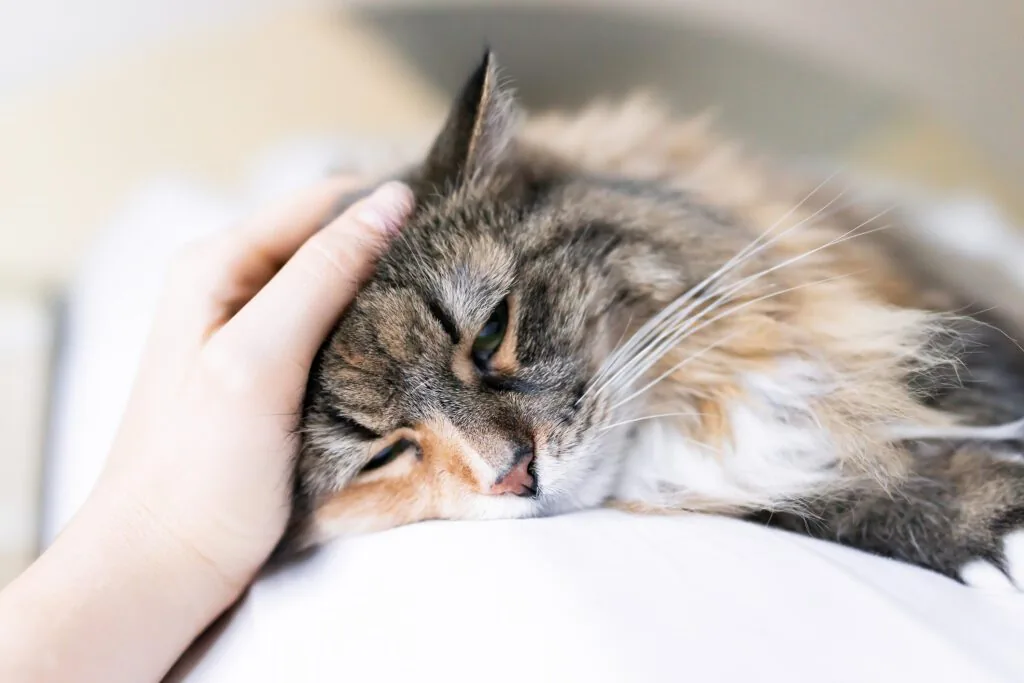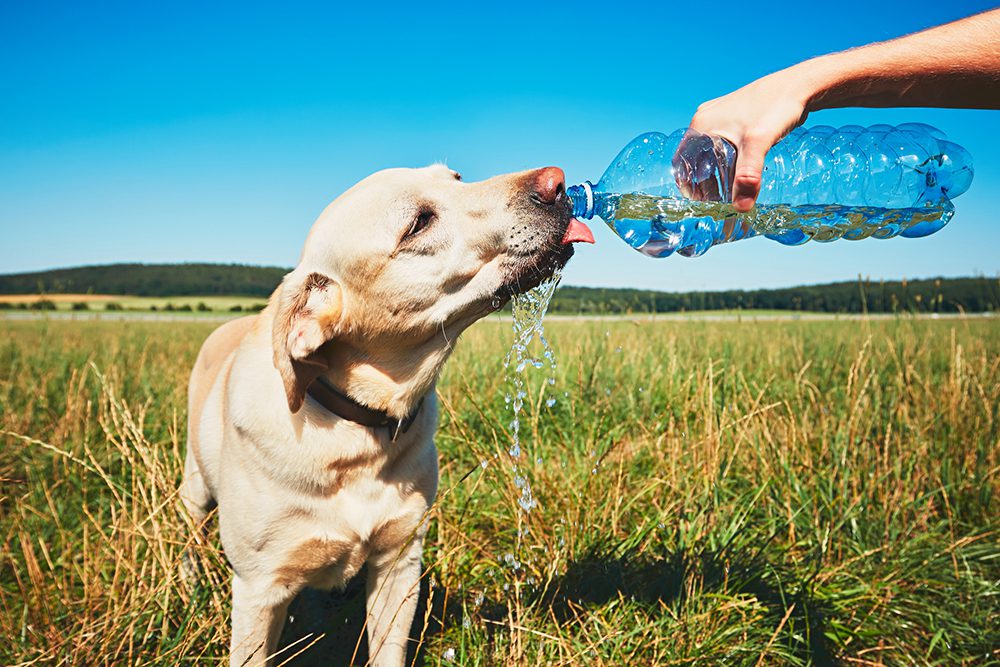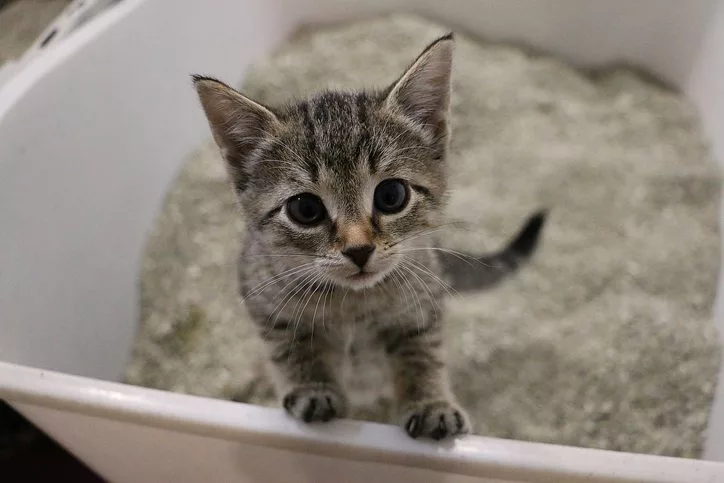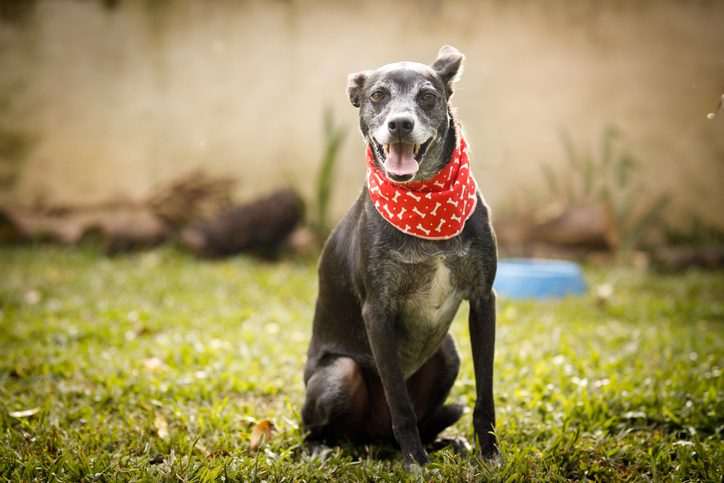Senior Pets are Beautiful
Old age is not a disease, but disease processes more often occur during older ages. Senior pets have lumps and bumps, cannot hear or see as well as they used to, and many have difficulties holding the bowels or bladder and cannot ‘get around’ as easy. Often times, these animals have given us years of loyal love, companionship and enjoyment and have been with us through difficult times ourselves. They deserve and have earned a comfortable retirement full of love, patience and understanding.
In their golden years, pets need us more in so many ways and this oftentimes equates to more expense, but they are worth every penny. It is important to remember that an ounce of prevention is worth a pound of a cure. This means that we need to prevent problems before they arise to have the best outcome possible for our pets. This applies to the younger years as well but often people forget that a senior pet will have different and sometimes more extensive needs. Planning ahead of time for your pet’s later years will make it easier for everyone.
Here are a few tips, tricks and recommendations to ensure your furry friends, and you, can enjoy their senior years to their fullest potential.
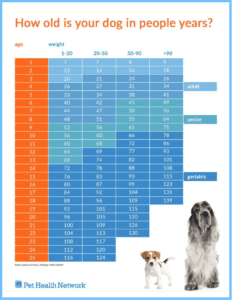
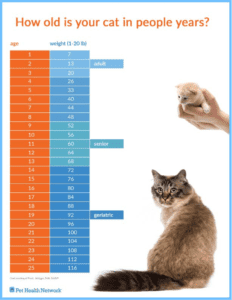
Physical Examination
Scheduling regular veterinary examinations is one of the most important steps pet owners can take. Sometimes this means annually, and sometimes as they get older it could potentially mean bi-annual, quarterly, monthly or even bi-weekly appointments to your pet’s doctor. During the senior health exam, your veterinarian will ask you a series of questions regarding any changes in your pet’s activity and behavior. The veterinarian will also conduct a complete examination of all your pet’s body systems from nose to tail tip.
Client education and laboratory testing are also key components of the senior exam. Bloodwork and urinalysis are the cornerstones of catching a problem before it is too late to intervene. Although our doctors can find many things on examination we do not have x-ray vision to assess the underlying organ function. This is where bloodwork and other diagnostics come in.
When your pet is healthy, laboratory tests provide a means to determine your pet’s “baseline” values. This is helpful to assess trends so if/when your pet becomes sick, we will be able to accurately quantify even minor changes in your pet’s organ function by allowing the veterinarian to compare the abnormal lab values to the baseline values. Subtle changes in these laboratory test results, even in the outwardly healthy animal, may signal the presence of an underlying disease. At a minimum, the following tests are recommended every 6-12 months.
Chemistry Panel: Chemistry panels measure electrolytes, enzymes and chemical elements such as calcium and phosphorous. This information helps your veterinarian determine how various organs, such as the kidneys, pancreas, and liver, are currently functioning. The results of these tests help your veterinarian formulate an accurate diagnosis, prescribe proper therapy, and monitor the response to treatment. Further testing may be recommended based on the results of these tests. Organ dysfunction is much more likely to develop in the older pet than when he/she was young. Annual monitoring is vital.
Complete Blood Count: This test measures the number of red blood cells, white blood cells and platelets in each sample of blood. The numbers and types of these cells give the veterinarian information needed to help diagnose anemia, infections, cancers, clotting disorders, etc. Anemia is very common in aging pets and can make a pet feel weak and have less energy. Sometimes our senior pets need a multivitamin or Vitamin B12 to help counteract anemia. Vitamin supplementation can help give your pet more energy and help them feel better. It also boosts the immune system and prevents infections.
T4 (Thyroid): Older cats tend to get over active thyroid (HYPERthyroidism) and older dogs tend to get underactive thyroid (HYPOthyroidism). It is important to test the thyroid to intervene quickly, especially in cats where thyroid disease also stresses the heart and kidneys and could cause irreversible damage if we wait to see symptoms.
Urinalysis: Analysis of the urine helps to screen for conditions such as urinary-tract infections, diabetes, dehydration, kidney problems and more. Often times there are changes in the urine before the bloodwork that will help clue us in that something is brewing and we can intervene before an organ suffers permanent damage.
Other diagnostics such as heartworm test, tick borne disease tests, blood smear, feline leukemia/feline immunodeficiency test, blood pressure measurement, X-rays, ultrasound and special ophthalmic evaluations may be necessary on an individual basis. Additional tests become especially important in evaluating senior pets that show signs of sickness or are being prepared for anesthesia and surgery.
Mental Changes
Our older friends tend to “slow down” as they age. This is multifactorial in nature as our senses like sight, hearing, taste, touch, and smell begin to decline. You may find that your pet has a slower response to general external stimuli. This loss of sensory perception is often a slow, progressive process, and it may even escape your notice. The best remedy for gradual sensory reduction is to keep your pet active—playing and training are excellent ways to keep their senses sharp. Make sure the exercise is low impact which means lower stress on the joints and muscles. This includes light fetching, long walks or jogging, swimming, etc. Avoid high impact exercise such as strenuous ball chase in the heat, running, wrestling, and jumping activities.
Older pets may also be affected mentally as they age. Just as aging humans begin to forget things and are more susceptible to mental conditions, so do our pets. Many of the holistic herbal remedies offered at Shepherd Hills Vet help improve cognitive function, improve circulation and energy levels. This is often expressed as anxiety, destructive behaviors, accidents in the house in a previously housebroken pet, disengagement from family and activities and confusion. The most important way to prevent cognitive decline is to keep the whole system happy and healthy and at optimum performance. This means high quality foods rich in essential amino acids, supplements and vitamins, regular veterinary check-ups, and good quality love and attention and mental stimulation.
Physical Changes
The physical changes your pet experiences are generally easier to spot than the sensory changes. This translates to difficulty jumping on furniture, getting up and down stairs, getting into or out of the litter box, walking across hard surface floors, limping, stiffness, slow to rise after sleeping, etc. As a pet ages, its ability to respond to an infection is reduced as well and the healing process takes longer. Therefore, it is crucial to consult a veterinarian if you notice a significant change in behavior or the physical condition of your pet. More importantly, head off these problems by asking your vet what vitamins and supplements we can add in before we notice outward symptoms.
One of the most common and frustrating problems for aging pets is inappropriate elimination. The kidneys are a very sensitive organ and as we age they are one of the first organs to begin to struggle to keep up with the body’s demands. Hormone imbalance can arise which may affect the function of the kidneys and bladder, causing your once housebroken pet to have trouble controlling their bathroom habits.
If you are away all day, your pet may simply not be able to hold it any longer or urine may dribble out while they sleep. Additionally, excessive urination or incontinence may be indicative of organ dysfunction, which may be treatable if caught early enough. Sometimes incontinence is a result of severe arthritis making it difficult for the pet to gain access to its typical bathroom location, so addressing the pain and discomfort may be enough to get your pet up and moving to the appropriate bathroom facilities again.
Nutrition
Many older pets benefit from specially formulated food that is designed with senior needs in mind. Obesity in pets is often the result of reduced exercise and overfeeding. It is a risk factor for problems such as heart disease, arthritis, thyroid dysfunction, diabetes, etc. Because older pets often have different nutritional requirements, specially formulated senior foods can help keep your pet’s weight under control and reduce consumption of nutrients that are risk factors for the development of diseases and organ dysfunction.
Arthritis
True or False:
- A pet that has arthritis will limp so you know they have arthritis.
- A pet that is limping BUT NOT whining is not in pain.
What is arthritis? Arthritis is the inflammation of the joints as a result of degeneration of the cartilage. Inside most joints is a smooth cartilage cushion combined with synovial fluid ensuring frictionless pain-free movement of the joint. For various reasons such as wear and tear, injury or infection this cartilage can begin to change or erode and the opposing bones in the joint will start to rub against one another without the benefit of the smooth cartilage. The body, sensing something is wrong in the joint, will act to fuse the joint by developing spurs or osteophyte formations that protrude out, rubbing on tendons, muscles and ligaments. This can happen to any synovial joint anywhere in the body from the spine to the legs and toes and even in the pet’s tail. When the bones rub against one another it can create significant bone and joint pain.
Even though our pets can get arthritis in any and all joints, dogs commonly have arthritic changes in their legs and pelvis. You may notice a decrease in joint range of motion, stiff gait pattern, slow to rise, laying down gently, decreased running and playing and very commonly limping that will improve as they move (‘working out the limping’ after a few steps).
Cats more commonly get arthritis in their spine. With this you may notice your cat not jumping up and down off furniture as much and/or not jumping as high. Sometimes people note their cat has stopped getting into things on counters. This is generally not a good sign despite how you feel about the behavior. The cat did not suddenly realize the error of its ways and stop jumping on the counter because it learned. They simply cannot jump up there anymore. Cats are silent sufferers. They will ALWAYS appear and act better than they are. When a cat shows signs of deterioration or illness it is typically fairly advanced.
The answers to the previous True or False statements are both False. As we just learned, cats especially are silent suffers. You will not see most cats limp or whine due to arthritic pain, but it is still present and needs to be addressed. And limping ALWAYS indicates pain; just because a dog is still wanting to play fetch while holding up a leg does NOT mean he is not in pain. If the leg wasn’t painful then he wouldn’t be limping on it.
For our senior pets, adding in a joint supplement such as glucosamine, chondroitin and omega-3 fatty acid fish oil supplements are important for joint health and work best if started before changes in the joint and cartilage have occurred. These supplements work best by preventing the arthritic changes but once the changes have occurred the supplements, although still greatly helpful, have less effect.
Do not wait for your pet to show signs of arthritis, start them on a supplement as soon as they reach the age considered senior. Cosequin is offered as yummy chewable supplements or sprinkle capsules to mix in food.
Exercise
Exercise is vitally important for all species. A body in motion stays in motion. Our bodies are meant to move and not lay around all day. Even though sometimes it’s hard to motivate ourselves and our pets to muster up the energy to get up and go for a walk, we need to. Even just a 30-minute walk a day can help keep bones, joints, heart, muscles and organs functioning at optimum level and prevent problems. Pick low impact exercises like walking, slow jogs, going up and down hills, swimming, etc. Avoid high impact exercise with senior pets such as frisbee toss, long distance running, rocky terrain hiking, etc. These types of exercises are hard on the joints and actually cause more inflammation than light movement. Those things should be reserved for our younger days.
For cats this is much more difficult because, by nature, they are sedentary animals. But it is still healthy for them to get up and get moving for at least 30 minutes a day. Cats enjoy chasing a feather, laser lights or string. Some cats will actually play fetch with balled up pieces of paper or even chase a few treats around the kitchen floor. Movement of any kind in gravity will push nutrients into the body’s cartilage and help prevent arthritis and joint pain.
Don’t forget to exercise the mind as well as the body. Maybe you can’t teach an old dog new tricks, but you can certainly continue his/her old tricks.
Pain Management
Pets experience pain just like humans do even though they don’t always show it like we do. Veterinarians are trained to recognize pain and help alleviate and prevent it. We have many natural supplements and modalities along with anti-inflammatory and other medications that may be helpful for your pet. To help ensure your pet lives comfortably during the senior life stage, it’s critical to work with your veterinarian to determine what medications are safe to give. Most over the counter pain medications are not safe to give and can actually cause a lot of harm so please DO NOT ADMINISTER OVER THE COUNTER PAIN MEDICATION WITHOUT CONSULTING YOUR VETERINARIAN.
Alternative Approaches: Ensuring the whole body and mind are healthy and comfortable is very important to health and wellness. This is true for all ages but the golden years are even more so as the body struggles to keep up with regular demand. Medications and supplements are usually enough but sometimes we need more. There are many modalities available that can help our pets have a pain-free comfortable life. These include laser therapy, acupuncture, chiropractic adjustments, hydrotherapy and more.
Shepherd Hills Vet has a working relationship with Dr. Kodii Moriuchi with Healing Hands Veterinary Services. Dr. Kodii is a licensed veterinarian who is certified in the healing arts of Veterinary Medical Acupuncture, Photobiomodulation (laser therapy), Medical Massage through CuraCore Integrative Medicine and Education Center and in Functional Movement Taping (Kinesiology Taping) through RockTape. She travels throughout southwest Missouri and will come directly to your home to help your furry loved one.
Surgery for the Older Pet
In the event the veterinarian is considering surgery or any other procedure in which anesthesia is needed, special considerations are taken for senior pets. Usually this is bloodwork, at the minimum a chemistry panel but ideally a full senior panel CBC, Chemistry, T4 and urinalysis. Depending on your pet’s physical status, bloodwork findings and the procedure being performed, additional testing may be warranted such as X-rays or ultrasound. All of these tools help the veterinarian determine how safe it is to perform anesthesia. The information gained will also allow your veterinarian to identify and reduce any potential risks or complications with anesthesia or recovery before the procedure. We can modify our anesthesia protocols or surgical approaches or sometimes even cancel a procedure altogether depending on results.
It is also important to ensure that the veterinarian uses proper anesthetic monitoring and sterile surgical technique. This includes but is not limited to: blood pressure monitoring, EKG, pulse oximetry, capnograph/respiration and temperature, and also ensuring properly cleaned and sterilized instruments with good sterile techniques being used. Do not be afraid to ask a veterinarian what their anesthesia and monitoring protocols are. A caring veterinarian will answer your questions thoroughly and help alleviate any questions, confusion or concerns you may have about anesthetizing your pet.
Signs of a Problem
Any of these signs warrant an appointment with your veterinarian as soon as possible. Older pets do not have the organ function or immune system to handle an illness or injury for a sustained period of time, so quicker action should be taken to yield better outcomes.
- Increased water consumption and/or urination
- Substantial weight loss or gain
- Decreased appetite or anorexia for 48hrs or more
- Significant increase in appetite (cats)
- Vomiting for more than 24hrs
- Diarrhea unresponsive to pumpkin or probiotics after 3 – 5 days
- Fecal and/or urinary accidents in a previously housebroken pet
- Limping for more than 3 days
- Open sores or scabs on the skin and/or intense itching/chewing/licking
- Foul mouth odor or drooling
- Difficulty eating, dropping food or pawing at mouth
- Excessive hyperactivity
- Increased amount of time spent sleeping or laying around
- Blood in stool or urine
- Sudden collapse or bout of weakness
- Seizures (convulsion)
- Persistent coughing or gagging especially in relation to exercise or excitement
- Breathing heavily or rapidly while at rest
Senior pets are just as beautiful as when they were young, even though they may look and act a little different. Your pet may not be able to keep up with your physical activity anymore or have the desire to get out and socialize/interact like they used to, but their love and dedication to you will not change and they deserve that love and dedication reciprocated to them. They need you now more than ever before, and Shepherd of the Hills Veterinary Clinic’s doctors and staff are here to help answer any questions or concerns you may have about your senior pet, and help you make the best decisions possible when it comes to their health and care.

Recent Posts
Understanding Parvovirus: What Every Pet Owner Needs to Know
Parvovirus is one of the most serious — and preventable — diseases that can affect our furry…
Pain in your Pet
As a veterinary professional, the most common fallacy owners hold about their animals is that their beloved…
Heat Exhaustion and Heat Stroke
Summer is and should be a time of outdoor fun and activities. Swimming, boating, fishing, hiking, camping,…
Why is my Cat Pooping Outside the Litterbox in Branson, MO?
If your cat has been pooping outside the litterbox, you’re probably feeling frustrated and worried at the…
6 Tips When Caring for a Senior Dog in Branson, MO
Taking care of a senior dog can be difficult for some pet owners. It’s hard to watch…
About Shepherd of the Hills Veterinary Clinic
Founded in 2018 by Dr. Amanda McGinty, we are a full-service animal hospital with a passion for pets and a commitment to community. We offer high-quality, competitively-priced care for Branson-area cats, dogs, rabbits, and pocket pets. At Shepherd of the Hills Veterinary Clinic, we want to provide the best healthcare possible, so we are fully equipped with state-of-the-art imaging and laboratory testing. In addition to carrying the latest technology, we value education and best-in-class care. Therefore, we are Fear Free certified, and Dr. Amanda utilizes a holistic approach using up-to-date modern medicine in addition to herbal and alternative therapies.




